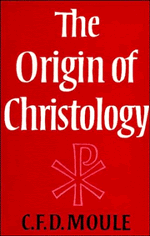Book contents
- Frontmatter
- Contents
- Acknowledgements
- Abbreviations
- Introduction
- 1 Four well-known descriptions of Jesus
- 2 The corporate Christ
- 3 Conceptions of Christ in writers other than Paul
- 4 The scope of the death of Christ
- 5 The fulfilment theme in the New Testament
- 6 Retrospect
- 7 Prospect: the ‘ultimacy’ of Christ
- Excursus: Obeisance (proskunein)
- Index of references
- Index of names
3 - Conceptions of Christ in writers other than Paul
Published online by Cambridge University Press: 01 June 2011
- Frontmatter
- Contents
- Acknowledgements
- Abbreviations
- Introduction
- 1 Four well-known descriptions of Jesus
- 2 The corporate Christ
- 3 Conceptions of Christ in writers other than Paul
- 4 The scope of the death of Christ
- 5 The fulfilment theme in the New Testament
- 6 Retrospect
- 7 Prospect: the ‘ultimacy’ of Christ
- Excursus: Obeisance (proskunein)
- Index of references
- Index of names
Summary
The preceding chapters have been concerned with Paul's understanding of Christ as more than individual, and I have maintained that this is an early and important piece of evidence about the genesis of Christology. Quite independently of questions such as whether a title like ‘Lord’ came to be applied to Jesus early or late, in Gentile surroundings only or also in Jewish contexts, here is undeniably early evidence, in the earliest dateable documents of the New Testament, that at least one great Christian found himself describing his experience of Christ in what one might call ‘divine’ terms. For Paul, experience of contact with Christ takes very much the same ‘shape’ as the ‘shape’ of God in any theist's belief: he is emphatically personal, yet more than merely individual. The pieces of evidence for this are, no doubt, complex and various; but out of them all, the main pieces selected for examination were the ‘inclusion’ language and the body language.
But these are largely lacking from other parts of the New Testament. Are we to deduce from this that Paul's experience of Christ was not typical – perhaps even that it was abnormal; and are we correspondingly to discount his experience when estimating the ways in which Christology was generated? Even if Paul could be proved abnormal, his experience would still need to be accounted for. We should still find ourseves asking, Who is Jesus, if he thus impinges, thus early in the life of the Christian movement, on even one – and that, an unusual – person?
- Type
- Chapter
- Information
- The Origin of Christology , pp. 97 - 106Publisher: Cambridge University PressPrint publication year: 1977

